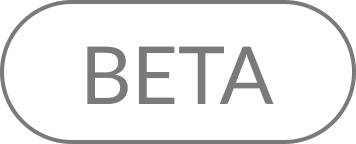- Home
- Learning Center
- Overview
- Legacy Strategy Framework
- Legacy Learning Methodology and Materials
- Organized Courses
- Individual Modules
- Comprehensive Document Architecture
- Customized Family Learning Programs
- Strategic Advisory Engagements
- Family Knowledge and Resource Center
- Raffles Family Wealth and Legacy Book Series
- Legacy Family Histories
- Join Us
- About Us
- History and USP
- Statement of Purpose
- Expert Team
- Advisory Services
- Honors and Awards
- Raffles Initiative for Global Policy and Leadership (‘RIGPAL’)
- Lord Mayor of London Global Family Office Summit
- Raffles Family Office Centre
- Raffles Family Office Network
- Speaking Engagements and Workshop Schedule
- Future Events
- TV & Appearances
- Trademarks
- Books
- Sign In
- Contact Us
Family Wealth and Legacy Planning: Turning a Financial Fortune into an Enduring Family Legacy
In every course, lesson and insight across this site, the role and contribution of leadership cannot be overstated.
Yet the kind of leadership required to diagnose, design and implement the most effective strategies for a legacy family differs in many ways from other forms of modern leadership models.
Mastering family leadership challenges in a legacy family setting requires defining and addressing all of the issues of a complex family – both ‘hard’ and ‘soft’ – in a rapidly changing context. It requires investing the time and effort to develop an understanding of the changes taking place in the world surrounding the family as well as the evolution of the family itself, it requires long term thinking when many strategic cycles are getting shorter and shorter, and it involves identifying and implementing both proven ‘best practices’ from the past and creative new ‘next practices’ for the future.
Seven Principles of Success for Leaders of Legacy Families
- Aspire and seek actively to improve on what is currently there
- Develop expertise in multiple domains
- Apply the highest levels of creativity and innovation
- Take a holistic approach: address both ‘hard’ and ‘soft’ issues
- Do not be afraid to end the old to make way for the new
- Benefit from the wisdom and capabilities of others
- Provide authentic leadership in a manner which inspires trust and engenders support
Course Modules
This Foundation Course will provide detailed explanations and practical examples of what you can do to become a Renaissance Leader in your own right: mastering and integrating the disciplines of our time, applying creativity and innovation, and inspiring trust in a manner which will enhance your own personal legacy as a family leader and give your family the best possible future it can possibly have.
The course content is structured around the seven principles set out above, captured in four related modules:
Module 1: Understanding where you are and what you want to be, setting aspirational goals for the future
Module 2: Defining the content of an approach to leadership, including a full thought process as reflected in the seven principles set out above to identify the best pathway forward for your family
Module 3: Defining the major challenges you face and thinking about what you need to do to master the longer term challenges in front of you, including the development of your family and its members in a broad set of capabilities and inculcation of the right set of values and guiding principles.
Module 4: Identifying and mustering the required supporting resources to move from deep insight to the informed action needed to build and maintain a laudable and enduring family legacy for your own family
Your course progress
Course Modules
-
Introduction and Overview
-
Family History, Challenges, Purpose, Vision and Values
-
Family Governance, Leadership and Succession
-
Structuring and Managing Family Wealth
-
Family Business: Good Ownership and Effective Strategy
-
Philanthropy and Social Engagement
-
The Family Office, Ecosystem and Risk Management
-
Family Dynamics: Culture, Relationships and Individual Issues
-
Next Gen Education and Generational Transition


